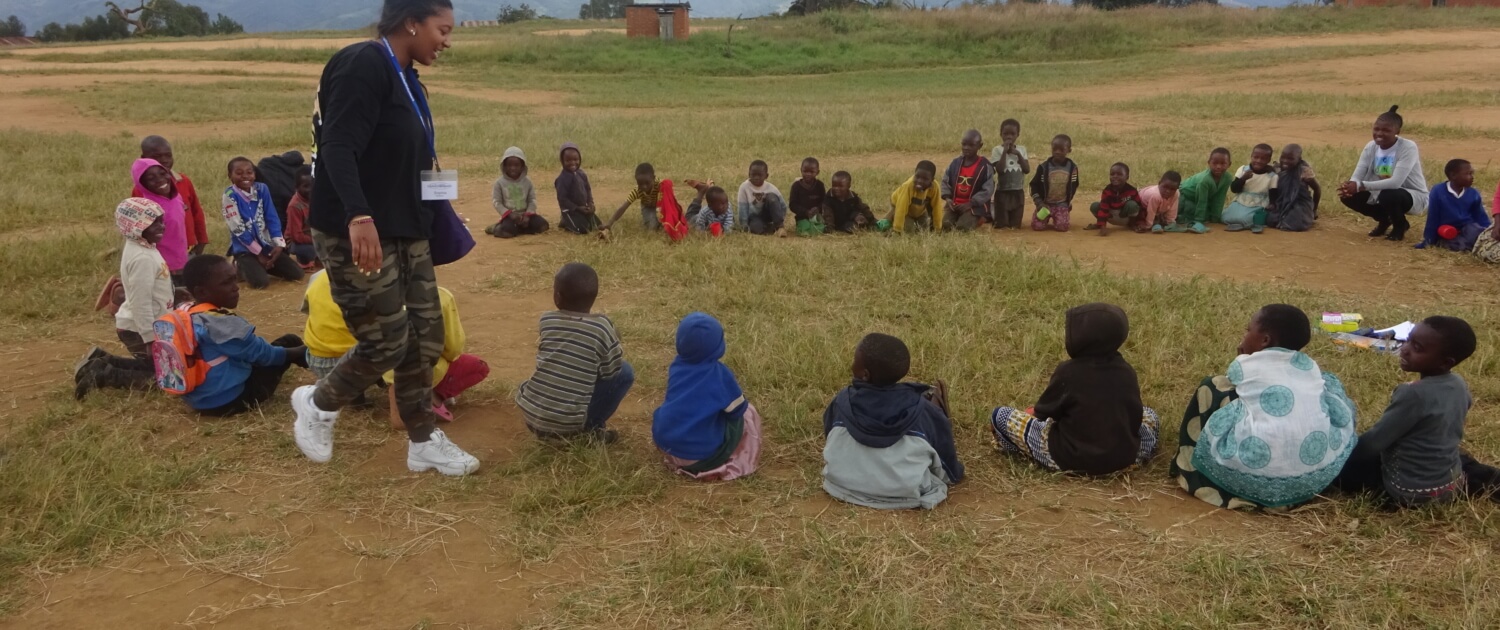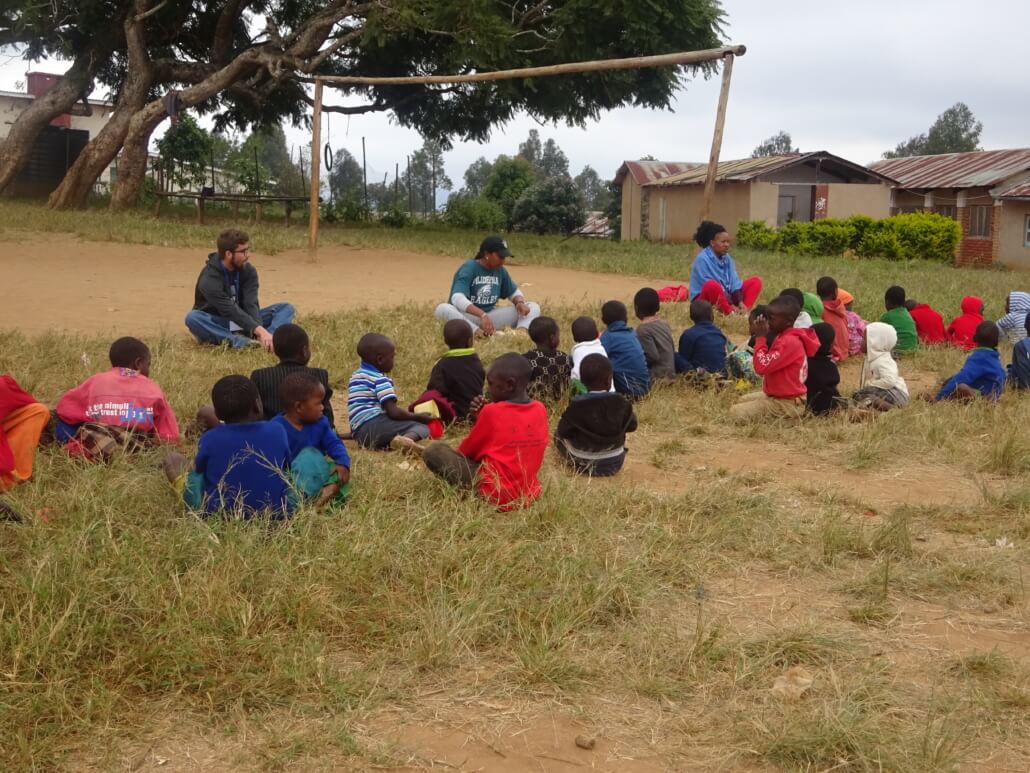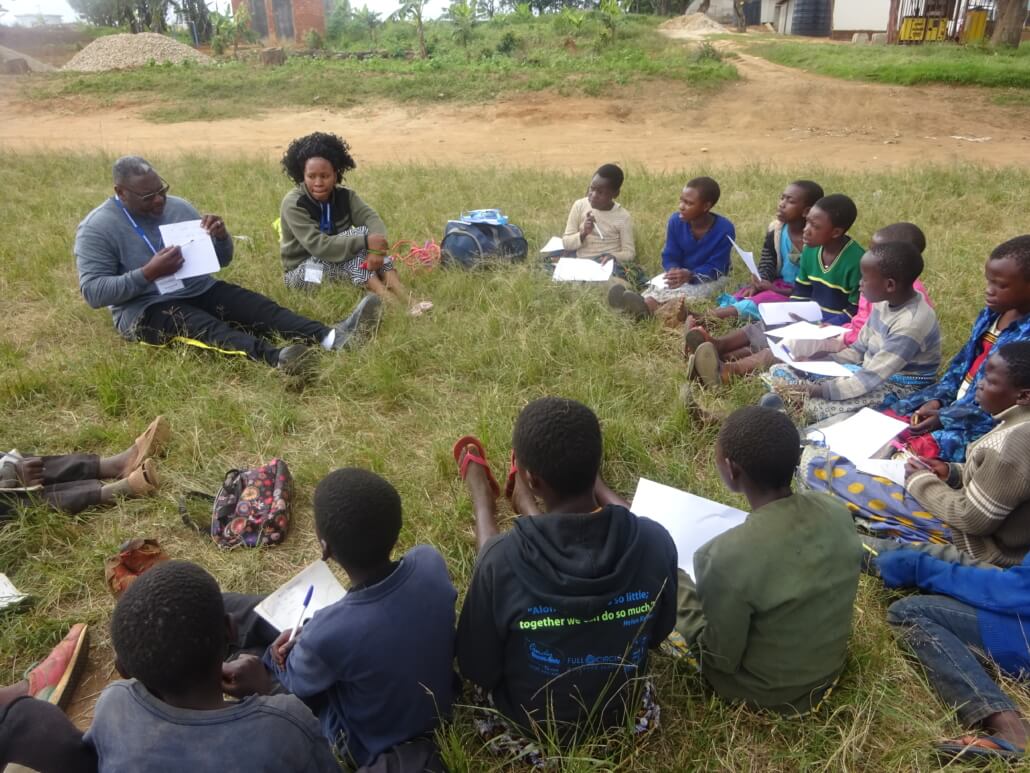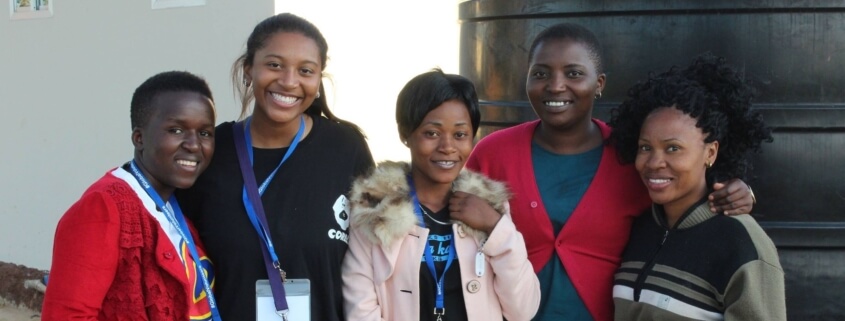HOW MY SERVICE IN TANZANIA FORMED MY IDENTITY
In collaboration with the Hairston Foundation, we conducted a Facebook Live interview with Sophia Hairston who joined Global Volunteers’ Reaching Children Potential Program in Tanzania. In this interview, Sophia emphasizes the importance of service especially after the pandemic, described how a day looks like for a volunteer in Tanzania, shares her experience and lessons, and invites youth to “get out of their comfort zones” and follow their passion for service.
Short-term Volunteers: A Renewable Resource for Reaching Children’s Potential Program in Tanzania
Even before her first volunteering experience in Tanzania ended, she was planning her next. Amazed by Tanzania’s friendly people, she respected the unique culture and way of life that still values the ties that link the parent to child, family to family, village to village. “I fell in love with the country. I knew I wanted to return to Tanzania for a service experience. My dad was the one who brought Global Volunteers to my attention. We researched the organization, and we found that it aligned a lot with our values, so we decided to go. I am glad that we did because we loved our time in Tanzania.”
For more than 30 years, Global Volunteers has worked at the invitation of and in partnership with the Evangelical Lutheran Church of Tanzania (ELCT) in facilitating and catalyzing human and economic development in the broader Iringa region. The needs in rural Tanzania are great. Life is hard, and there is a day-to-day struggle to survive off the land. Medical supplies are inadequate, food and nutrition are too often insufficient, and access to quality education is limited. In 2017, we initiated the Reaching Children’s Potential Program (RCP) to address childhood stunting and help children reach their full potential.
“My best advice for someone wanting to volunteer anywhere is to listen and respect local people – and only help where it is asked.”
Sophia Hairston
Short-term volunteers are a renewable resource that, together with locally empowered people, catalyze long-lasting change. Through Global Volunteers’ RCP Program, families and communities acquire the necessary knowledge, technology, and encouragement to combat stunting and ensure children can realize their full potential.
Sophia strongly supports the Global Volunteers’ hallmarks of volunteer travel, and highlighted the importance of working with and under the directions of local leaders. “My best advice for someone wanting to volunteer anywhere is to listen and respect local people and only help where it is asked. There is a real danger of falling into a “savior mentality” with service trips, and I think that the best way to avoid this is by listening to what people want help with, and just doing what they ask.” She added the significance of learning from and about local people who are making real change in their communities is to help children grow and thrive, “This experience was extremely rewarding. I think that as much as I contributed, I received probably double in life lessons and experience. I would not change this experience for the world. I’m thankful for Global Volunteers for giving me that opportunity.”
Watch Sophia’s entire Facebook Live interview here:
A Day in a Life of a Tanzania Global Volunteer
Volunteers serve in different capacities; from supporting pregnant women, to teaching math and sciences to secondary school students. Volunteers transfer relevant knowledge to parents through workshops and home visits. They also help families increase vegetable, chicken, and egg production, provide household hand-washing stations, and help build improved cooking stoves. Health volunteers offer patient care, assist with deliveries, and perform pre- and post-natal checkups at the clinic. And, business professionals help villagers start cooperatives and offer advice on marketing, production, and financial management. Other volunteers teach in the schools, conduct English language camps, serve school meals, work in the greenhouse, and help repair and maintain community buildings.
During their service experience in Tanzania, Sophia and her father, Roosevelt, taught children age 3-14 English phrases and introductions, math like addition and subtraction, and reading. Sophia explained how a regular day for a volunteer looked.
“We would wake up and eat breakfast with the other volunteers. Then, we got ready and gathered the materials for our lesson plans. A typical lesson plan for my age group (3-9 years) would be more English-focused. It included a lot of songs, games, and stories.
At lunch, we were responsible for feeding the kids porridge. Then, the volunteers would all come together for lunch.
After lunch, the lesson plan included a lot more physical activity. We played games like soccer or tag. My younger ones would play Duck Duck Goose.
As a volunteer, it was my responsibility to ensure the kids’ safety and happiness. I tried to create a very inclusive environment and spread a lot of positivity.”

During late afternoon and evening free time, volunteers have the opportunity to play with the children, learn a few words of Swahili, socialize with local people and other volunteers, and maybe even participate in an East African cooking lesson or listen to a local choir. While on weekends, many volunteers take a safari in Ruaha National Park, the largest national park in East Africa covering about 5,000 square miles.
“On weekdays, there was time to unwind, plan for the next day, and rest before dinner in the afternoons. I often spent my evenings watching the soccer games at the fields next to the volunteer guesthouse. I also walked through the village, met new people, and engaged with the community. On the weekend, some of the volunteers went on a Safari trip on Saturday and returned on Sunday evening. My dad went on a safari for one of the weekends.”
“Changing my perspective and mentality toward service.”
Sophia maintains her service program adjusted her perspective on her future. “Other than generating a perspective, volunteering changed my overall mentality towards service. It reminded me that service comes in many forms.” Although at first she doubted her contributions would have better “come in a physical form like clothes or money,” she came to realize the value of her personal attention. “I donated my time and hoped that I was making an impact. I found myself questioning whether or not I was doing enough because the immediate impact was not visible. Once the connections were formed, I realized that if all I achieved that particular day was making a kid laugh, my contributions were valid. Giving back to the world can be as simple as like spreading kindness and just offering an ear to listen whenever I can.”
” I donated my time and hoped that I was making an impact. I found myself questioning whether or not I was doing enough because the immediate impact was not visible. Once the connections were formed, I realized that if all I achieved that particular day was making a kid laugh, my contributions were valid. Giving back to the world can be as simple as like spreading kindness and just offering an ear to listen whenever I can.”
Sophia Hairston
The George Washington University sophomore shared that other than improving her teamwork and communication skills, the RCP Program had a significant influence on her decision to pursue a psychology degree. “I chose a major in psychology because I was disappointed in the stigma surrounding mental health issues everywhere in the world. I was shocked by the lack of aid and treatment in developing and underdeveloped countries. My hope is to de-stigmatize mental health issues in Tanzania, and normalize treatment.”

Tanzania Volunteers Sophia and Alex teaching conversational English. 
Sophia’s father, Roosevelt, reading a book to children in Tanzania.
An Open Invitation to Explore your Passion through Service
“I think that at my age, everyone is going through the journey of trying to find who they are, what they want to do. I had no clue what I wanted to do before this trip,” Sophia confessed, and continued enthusiastically. “I think that whoever is trying to find a little bit of reason or spark, whoever is trying to find their thing, should volunteer. This trip gave me the guidance and reassurance that I needed. My service in Tanzania formed my identity, and this is why I want to go back.”
Sophia summarized her volunteering spirit. “I love meeting people. I love seeing new places and just embracing a culture. Right now, being disconnected from the entire world during the pandemic is making people want to explore, engage and connect with others. Hopefully, we will see a surplus of volunteers wanting to serve.”
“I think that whoever is trying to find a little bit of reason or spark, whoever is trying to find their thing, should volunteer. This trip gave me the guidance and reassurance that I needed. My service in Tanzania formed my identity, and this is why I want to go back.”
Sophia Hairston
Sophia evangelizes Global Volunteers’ model of impacting local communities through service. No need to commit years of your life to make a difference! Short-term volunteers in long-term community development projects can have a everlasting impact.
If you’re ready to pack your bags and experience authentic village life in Tanzania while helping eliminate childhood stunting, please read more about the Reaching Children’s Potential Program here.
You may also like:
- 42 YEARS OF VOLUNTEER SERVICE WORLDWIDE!
- A First-Time Volunteer’s Experience at Anse La Raye Primary Summer School
- From Carrying Bricks to Leading a Clinic: Amilia Kikoti’s Triumph Over Adversity in Rural Tanzania
- New Year’s Traditions Around the World: A Journey Through Five Countries
- Meet Your Peru Team Leader: Jorge Sánchez




Leave a Reply
Want to join the discussion?Feel free to contribute!